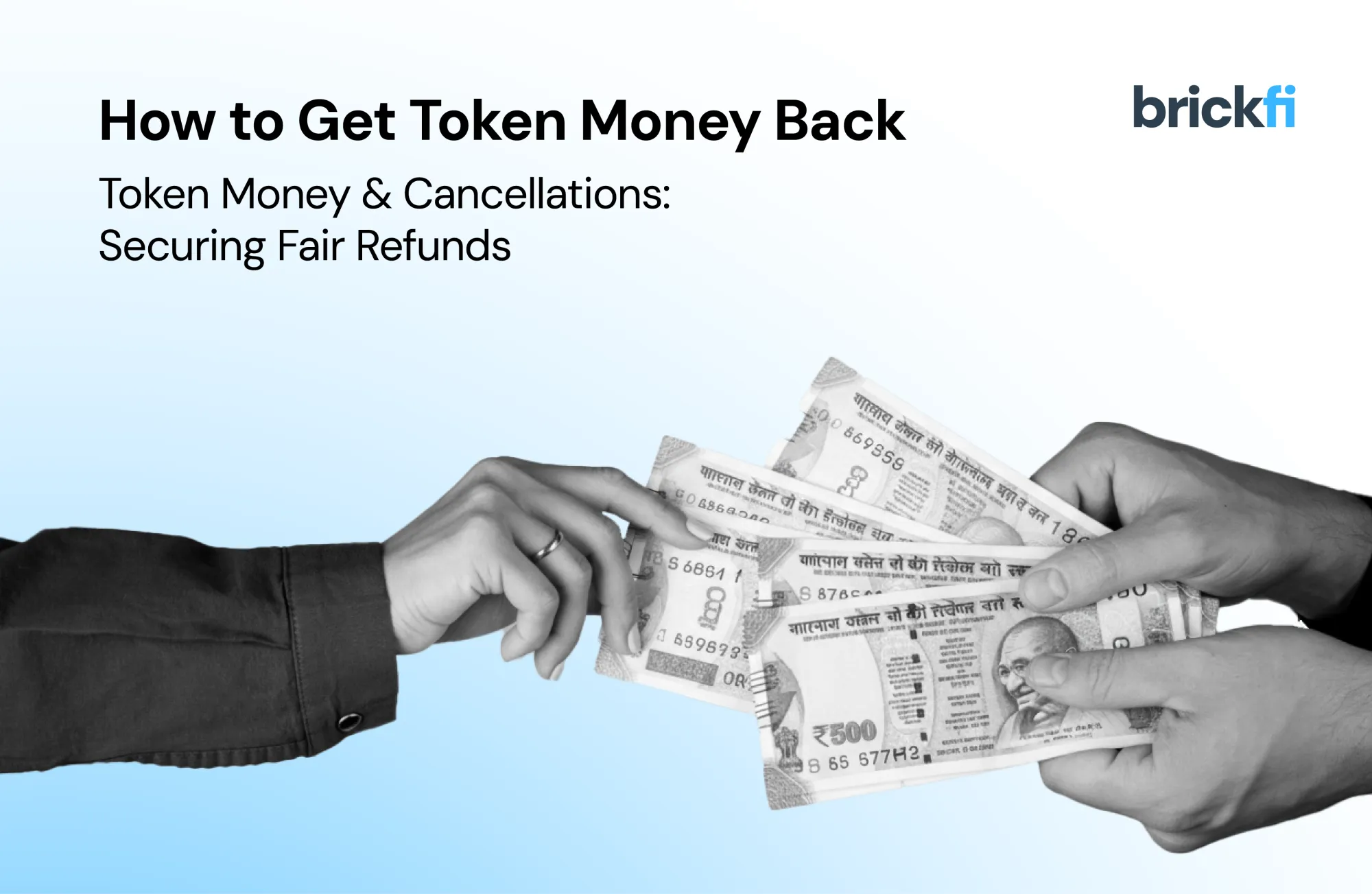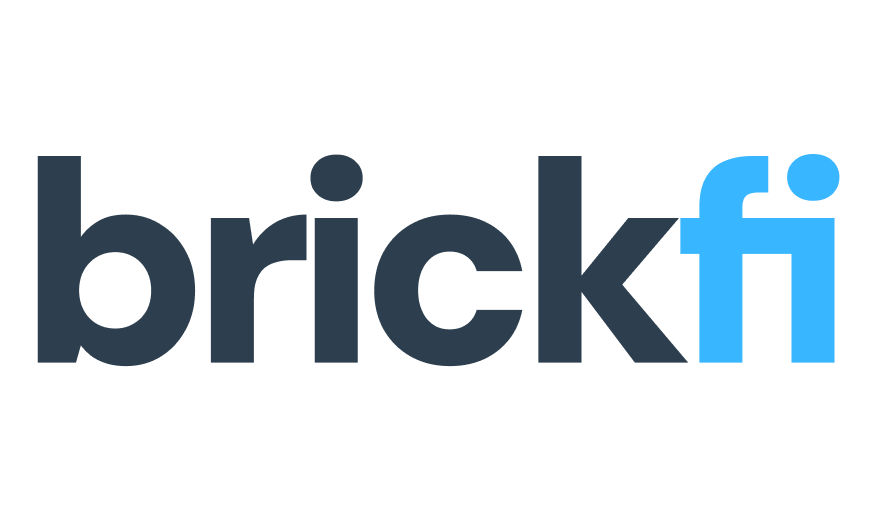Token Money & Cancellations: Securing Fair Refunds
Learn how to get token money back after cancellation. Understand RERA refund rules, booking terms, penalties, and your rights as a homebuyer.

Key Takeaways
- Under RERA, builders must refund token money (less permitted deductions) within 45 days of cancellation.
- Buyers may lose part of token money (often up to 2 percent) if cancellation is by buyer within the stipulated period.
- Cancellation penalties, booking terms, and builder NOC clauses all matter, get them in writing.
- In case of non-refund or delay, you can issue legal notice or approach RERA for enforcement.
- Keep all documents, payment proofs, written terms, and records — they become critical when claiming refund.
Overview: How to Get Token Money Back
Token money (sometimes called earnest money) is the initial amount a buyer pays to show intent when booking a property. But life doesn’t always go as planned, and sometimes cancellation becomes necessary. Knowing how to get token money back, especially in under-construction or mid-booking deals, is essential for a first-time buyer or even a seasoned investor.
In real estate today, token money is a delicate balance — it protects the builder from frivolous cancellations, yet must not be used as a trap to exploit buyers. Laws like RERA have introduced protections, rules, and timelines for refunds, but much depends on booking terms, clauses, and whether the project is registered under the right authority.
In this article, we’ll walk you through the rules around refunds, how to enforce them, watch-outs, and practical steps you can take to recover your token money if things don’t go as planned.
What Do Token Money and Booking Terms Mean?
Token money is a small upfront payment paid by the buyer to the seller or builder when agreeing (verbally or provisionally) to a property purchase. It locks the deal and signals seriousness. Booking terms are the conditions in the initial agreement or MoU (Memorandum of Understanding) that define when token money is refundable, what deductions apply, time periods, and cancellation rights.
These terms must be documented in writing, verbal commitments are weak protection. Always insist on a token money receipt or MoU that mentions property details, amount paid, conditions of refund, timelines, and parties involved. If you skip this step, getting back your payment later becomes harder.
Get instant access to expert, data-driven property insights.
Request your free Brickfi investment report now and make smarter real estate decisions today.
RERA and Token Money Refund Rules
One of the stronger protections for buyers comes from RERA (Real Estate Regulation and Development Act). Under RERA:
- The builder is required to refund token money to the buyer within 45 days of cancellation.
- If the buyer cancels within certain windows (often within 45 days of receiving allotment), the builder may deduct a small portion (commonly 2%) as penalty.If refund is delayed beyond 45 days, interest may be payable by the builder under RERA rules.
- Also, developers must not demand token money beyond a legally allowed ceiling. Some states impose caps so that buyers are not exploited.
These rules give buyers leverage. But enforcement depends on whether the project is registered, whether the builder complies, and whether booking terms align.
Situations That Affect Your Refund
When requesting a refund, several factors play a role:
- If Builder Cancels the DealIf the builder or seller is at fault, say they cannot deliver, or approvals are missing, you should receive a full refund (perhaps with added interest), not just token money.
- If Buyer CancelsWhen you cancel, the builder may be permitted to deduct a small penalty (e.g. 2 percent) before refunding the balance, depending on your booking agreement and state RERA rules.
- Time of Cancellation If cancellation is done early (before certain milestones or before allotment letter issuance), your refund claim is stronger. Later cancellation or deeper into construction often weakens your refund rights.
- Project Registration and Builder ComplianceRefund rights are stronger if the project is RERA-registered and the builder follows legal norms. Without registration, your legal recourse becomes weaker.
- Written Booking Terms vs Loose DealsIf your MoU or token money document did not mention refund clauses, the builder can refuse. Always insist on explicit booking and refund terms upfront.
Step-by-Step: How to Claim Token Money Refund
- Review Booking Terms Start with the token money document or MoU. See whether it says “nonrefundable,” “subject to 2 percent penalty,” or other conditions.
- Send Formal Refund Request Write to the builder or seller referencing your booking, cancellation decision, the clause you rely on, and ask for refund within 45 days. Always use registered mail or email traces.
- Check RERA Status Confirm if the project is RERA-registered. If yes, you can escalate the matter via RERA complaint channels if the builder does not cooperate.
- Issue a Legal Notice If there is no satisfactory response by the deadline, have a lawyer issue a legal notice demanding refund and interest as per RERA or contract law.
- File RERA Complaint or Civil Suit If the builder continues refusing, file a complaint with the State RERA authority (if applicable). In cases outside RERA, you may approach consumer court or civil courts.
- Collect Evidence Keep original receipts, MoU, payment proofs, cancellation letters, all communications. These will be your proof when demanding refund.
- Escalate with Interest If refund is delayed beyond 45 days, you may claim interest for delay as per RERA or contract law.
Many buyers have successfully recovered token refunds by combining the above steps. For example, some cases saw refunds processed after six months when RERA orders were invoked.
Get instant access to expert, data-driven property insights.
Request your free Brickfi investment report now and make smarter real estate decisions today.
What Builders Often Argue, And How to Counter
- Builder says token money is nonrefundable Counter: That clause must be lawful under RERA and your state laws. If your project is RERA-registered, blanket nonrefundable terms are invalid.
- Builder delays refund citing internal approvals You can demand proof of approvals. Under law, delay beyond 45 days attracts interest.
- Builder claims buyer defaulted on payments You can request a lien or an audit of the builder’s claim. You are entitled to full documentation and clarity.
- Builder says property is sold or reserved elsewhere That does not permit complete forfeiture of token money, especially if cancellation was proper and timely.
Negotiation backed by legal knowledge often helps, a builder may agree to return a larger share if you threaten RERA complaint or legal escalation.
Tax & GST Implications
- GST on token money: If the property is under construction, GST is levied on the sale agreement value or payments including token amount. So a refund might involve tax adjustments.
- Stamp duty and registration: These payments (if already paid) are normally non-refundable because they go to government treasuries.
- Income tax implications: For the seller, the deduction or forfeiture may count as income or capital adjustment depending on tax law and timing.
Always consult a tax advisor when dealing with refunds and adjustments.
Timeline You Should Expect
Once cancellation is confirmed and paperwork is submitted, the builder should process the refund within 45 days under RERA rules. If no action is taken by then, you can initiate legal steps. Real-world cases show delays can stretch to three to six months if escalated to RERA or civil suits.
Always Protect Yourself: Best Practices
- Never pay token money in cash, always use bank transfers or digital means to keep a trace.
- Insist on a written MoU or booking receipt, detailing token money, refund conditions, and timelines.
- Verify builder’s credentials, RERA registration, title documents before paying anything.
- Limit token money to a small percentage (commonly 1–5 percent) to reduce risk.
- Keep copies of all communications, emails, letters, messages — for proof.
- Engage a legal advisor before escalating disputes to RERA or court.
Get instant access to expert, data-driven property insights.
Request your free Brickfi investment report now and make smarter real estate decisions today.
Token Money & Cancellations: Securing Fair Refunds
Getting token money back is possible, but you must navigate the rules carefully. RERA offers strong protection for buyers, from refund deadlines to limits on deductions and interest for delay. But protections only work if you document everything, act timely, and assert your rights.
If you’re booking a property or have already paid token money, use caution. Have clear booking and refund clauses in writing. If cancellation becomes necessary, follow the stepwise process: demand refund in writing, leverage RERA, issue a legal notice, and escalate only when needed. Protecting your financial interest should matter just as much as investing in the property itself.
As always, when things get complex, it helps to have a partner who understands real estate deeply. Platforms like BrickFi help by analyzing booking terms, builder credibility, refund clauses, and risk built into deals. With the right insight, you can navigate token money disputes with confidence rather than stress.
FAQs: How to Get Token Money Back
What is token money in real estate?
Token money is a small upfront payment from a buyer to reserve a property and show serious intent before signing full legal agreements.
Can I get token money back if I cancel?
Yes, especially for projects under RERA. The builder must refund within 45 days, though deductions (often up to 2 percent) may apply based on booking terms.
What if the builder refuses to refund?
You can issue a legal notice, file a complaint with RERA, or approach civil court. Keep payment proofs and booking documents ready.
How much can the builder legally deduct?
In many states under RERA, the builder can deduct a small percentage (commonly up to 2%) as penalty if cancellation happens within the legally protected cancellation window.
Does GST need to be refunded too?
If the property is under construction, token money may attract GST. Whether it can be refunded depends on the timing and builder’s accounting. Always get clarity in writing.
Get instant access to expert, data-driven property insights.
Request your free Brickfi investment report now and make smarter real estate decisions today.
